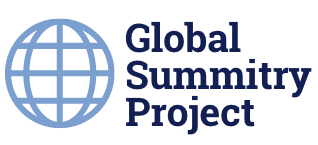
Tianlei Wu
Tianlei Wu is an emerging journalist living in Toronto. She is passionate about global governance with a particular interest in Chinese foreign relations. As a student in the University of Toronto Scarborough / Centennial College joint journalism program, Tianlei contributed to the Global Summitry Project as part of an experiential learning opportunity in 2021.
Jack Austin, a former senator and federal minister of the Liberal Party of Canada who has been committed to building ties between Canada and China, is disappointed by the current state of relations between the two countries but believes there is still hope for the future.
Austin was the minister of state in the cabinet of Prime Minister Pierre Trudeau in the 1980s. Austin was a pioneer in promoting bilateral relations with China and his contribution to foreign policy made him one of the most knowledgeable Canadian officials in Canada-China relations.
Austin’s diplomatic work on China began at the outset of the establishment of official diplomatic relations between the two countries. His first official trip to China was in 1971 when he was the deputy minister of energy, mines and resources. Austin and five other deputy ministers were part of the first Canadian trade mission sent by the Canadian government to China. They oversaw negotiations between Canada and China for an exchange of diplomatic recognition and to open technical relations.
Austin’s dedication to developing relations with China dates back to this visit. He said he was profoundly impressed by a society with an enormous amount of ambition and restrained energy.
Austin commented that China has demonstrated phenomenal economic growth over the past 50 years and the material conditions of the Chinese people went from near poverty to, as President Xi Jinping described to, “a modestly successful society.”
“I had no idea how quickly China would grow,” Austin said. “Nobody I think, even in Zhongnanhai, the residence for top leaders, ever thought that China would be where it is today in 2021.”
Over his political career, Austin foresaw that China would become an important member of the international community. Austin took the initiative to engage with China in bilateral relations for all these years.
In 1998, He founded the Canada-China Legislative Association, a forum that was set up at the suggestion of former Chinese president Jiang Zemin for a formal relationship between Canadian parliamentarians, and the National People’s Congress of China. Austin also served as the president of the Canada China Business Council from 1993-2000 and vice-chairman from 2000-2003.
Apart from the diligence that the Chinese people have shown in their efforts to escape poverty, Austin also envisioned the potential of the Chinese market and the advantage of maintaining bilateral merchandise trading with China.
“It wasn’t difficult to see that China intended to build a society and stand high in the global community, and the Chinese people are willing to work hard to escape poverty. That had to be fascinating,” Austin said.
This idea continued throughout his career. Austin was drawn by the high-speed economic growth of China and its culture. He has been instrumental in East Asia studies aside from his political focus on China. He is an Honorary Professor at the Institute of Asian Research, School of Public Policy and Global Affairs at the University of British Columbia and the co-chair of the UBC China Council.
Austin foresaw that China’s development would lead to an increase in its demand for food, tourism, and higher education. Canada would also be able to take advantage of Chinese manufacturing. He suggested it would be beneficial for the two countries to build a bilateral relationship around commerce, business, culture, history and education. His predictions turned out to be true.
Nevertheless, the current tension in Canada-China relations is putting everything on hold.
“I think there’s a basis for renewing very positive relationships [between Canada and China] but not until these current issues are behind us,” Austin said in a recent telephone interview from Vancouver.
The current issues are, as Austin stated, Meng Wanzhou’s legal process and the ‘Two Michaels’ who are currently detained in China.
The RCMP arrested Meng, Huawei’s chief financial officer, at Vancouver International Airport at the request of the U.S. in December 2018. Meng was charged with “conspiracy to defraud multiple international institutions.” She is now on bail and under house arrest in Vancouver.
‘Two Michaels’ refers to Michael Spavor and Michael Kovrig, two Canadians who were detained in China in December 2018. They are suspected of crimes endangering China’s national security. Michael Spavor’s closed-door trial took place on March 19, and the verdict is pending.
“Unfortunately, there’s been a real decline in [the favourable] opinion in Canada with respect to China as a result of these issues and the Canadian political system has to work with the political attitude of the people in the country. And their attitudes are somewhat on the negative side at the moment,” Austin said.
Despite the historic goodwill that Austin sees between the two countries, he admits it’s hard to imagine the relationship progressing until the legal processes with Meng Wanzhou and the ‘Two Michaels’ are settled.
